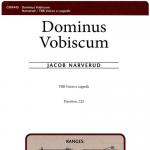The Star Trek: Discovery episode “Vaulting Ambition” has a discussion early on about the fact that Emperor Georgiou is not the same person that Michael Burnham betrayed in her universe. But she say that it nonetheless “feels like a reckoning.” When Captain Lorca says that she is, effectively, a “ghost,” Burnham responds by asking if he has never been afraid of ghosts.
Paul Stametz encounters a version of himself in a mysterious forest, and he asks whether this is an afterlife and he is dead. His other self says that he was wrong about everything, there is a God, and she is very upset. But then he laughs and reveals that he is “him” but in the parallel universe. In that universe too, Paul is in a coma and connected to the mycelial network. It turns out that his visions were of the parallel universe, where he saw things such as Tilly as captain. As for the question of God, the Paul from the parallel universe simply says, “Who knows?”
Burnham brings Gabriel Lorca before the Emperor, and when they enter, her titles are recited. The Emperor refers to Burnham as “dear daughter” and says how glad she is that Burnham didn’t die hunting Lorca. At dinner, they dine on Kelpian. In the conversation that ensues, we learn that the Emperor knew that Burnham and Lorca were conspiring to take her throne, and so she wonders why she returned – and orders her execution. In order to avoid execution, Michael reveals that she is from another universe and not the Michael Burnham that Emperor Philippa Georgiou previously knew, and offers proof – the insignia of her own Philippa Georgiou. The Emperor then kills most of her guards and spares Burnham, indicating that she is familiar with the United Federation of Planets. She learned of the Federation from the U.S.S. Defiant and views their ideas about equality as dangerous. The crew of the Defiant went insane as a result of its crossover through interfasic space. When the Emperor learns that the Discovery crossed another way, she proposes an exchange, seeking information about their spore drive technology.
In the realm in which Paul finds himself, Hugh encounters Paul and tells him what he does not yet know – that he (Hugh) died. They talk about their love for one another. Paul describes the mycelial network as hell, but Hugh says it is a gift – but one that he has to save, since their use of it risks destroying the mycelial network and ultimately the fabric of spacetime itself. Hugh tells him that he was right, that nothing is ever truly gone. Paul wakes up – but with the minds of the two Pauls seemingly switched.
Saru brings Tyler/Voq to L’Rell, saying that what is happening to Tyler – Klingon and human in the same body – is what war really looks like. L’Rell says that she can help him. Voq prays to Kahless for light, to father for freedom, and to sister for family.
At the end of the episode, it turns out that the Lorca who recruited Burnham and arranged the jump to the parallel universe is himself from the parallel universe – and his light sensitivity is a characteristic of the humans in that universe.
I’m not sure what I make of this twist – some might say that Discovery just jumped the alien tardigrade. I wonder whether, rewatching the earlier episodes, this would seem plausible – whether it was in the writers’ minds for a long time or is a soap opera style twist introduced only now. But if nothing else, where other revelations have been guessed at by fans, this one certainly took me by surprise.
What did you make of the episode? It seems to me that, for the two humanities to have moved in such different directions, they would need to have very different concepts of God, such that the conversations between the two Pauls would have needed to look very different. Then again, perhaps this is a sign that, secretly, not only religious ideas but bonds of love that are ruled out by the competitive and violent approach to all things characteristic of the Terran Empire, must live on not only in the alliance of the conquered, but among some humans as well, just as has been the case in the midst of empires in our universe whose values are incompatible with those of Christianity and other traditional religions.













